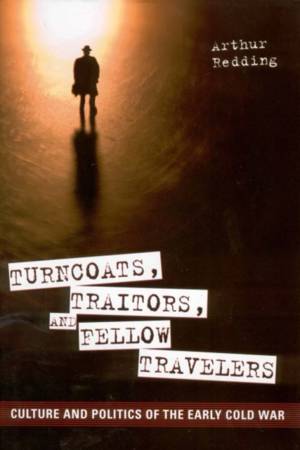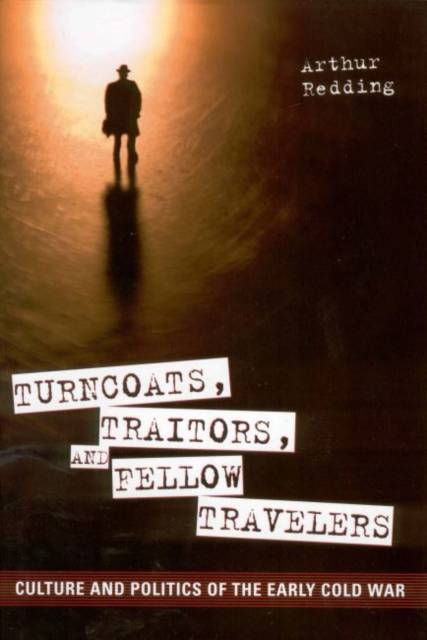
Bedankt voor het vertrouwen het afgelopen jaar! Om jou te bedanken bieden we GRATIS verzending (in België) aan op alles gedurende de hele maand januari.
- Afhalen na 1 uur in een winkel met voorraad
- In januari gratis thuislevering in België
- Ruim aanbod met 7 miljoen producten
Bedankt voor het vertrouwen het afgelopen jaar! Om jou te bedanken bieden we GRATIS verzending (in België) aan op alles gedurende de hele maand januari.
- Afhalen na 1 uur in een winkel met voorraad
- In januari gratis thuislevering in België
- Ruim aanbod met 7 miljoen producten
Zoeken
Turncoats, Traitors, and Fellow Travelers
Culture and Politics of the Early Cold War
Arthur Redding
Paperback | Engels
€ 59,45
+ 118 punten
Uitvoering
Omschrijving
The Cold War was unique in the way films, books, television shows, colleges and universities, and practices of everyday life were enlisted to create American political consensus. This coercion fostered a seemingly hegemonic, nationally unified perspective devoted to spreading a capitalist, socially conservative notion of freedom throughout the world to fight Communism. In Turncoats, Traitors, and Fellow Travelers: Culture and Politics of the Early Cold War, Arthur Redding traces the historical contours of this manufactured consent by considering the ways in which authors, playwrights, and directors participated in, responded to, and resisted the construction of Cold War discourses. The book argues that a fugitive resistance to the status quo emerged as writers and activists variously fled into exile, went underground, or grudgingly accommodated themselves to the new spirit of the times. To this end, Redding examines work by a wide swath of creators, including essayists (W. E. B. Du Bois and F. O. Matthiessen), novelists (Ralph Ellison, Patricia Highsmith, Jane Bowles, and Paul Bowles), playwrights (Arthur Miller), poets (Sylvia Plath), and filmmakers (Elia Kazan and John Ford). The book explores how writers and artists created works that went against mainstream notions of liberty and offered alternatives to the false dichotomy between capitalist freedom and totalitarian tyranny. These complex responses and the era they reflect had and continue to have profound effects on American and international cultural and intellectual life, as can be seen in the connections Redding makes between past and present.
Specificaties
Betrokkenen
- Auteur(s):
- Uitgeverij:
Inhoud
- Aantal bladzijden:
- 224
- Taal:
- Engels
Eigenschappen
- Productcode (EAN):
- 9781617033292
- Verschijningsdatum:
- 24/04/2012
- Uitvoering:
- Paperback
- Formaat:
- Trade paperback (VS)
- Afmetingen:
- 152 mm x 229 mm
- Gewicht:
- 294 g

Alleen bij Standaard Boekhandel
+ 118 punten op je klantenkaart van Standaard Boekhandel
Beoordelingen
We publiceren alleen reviews die voldoen aan de voorwaarden voor reviews. Bekijk onze voorwaarden voor reviews.









